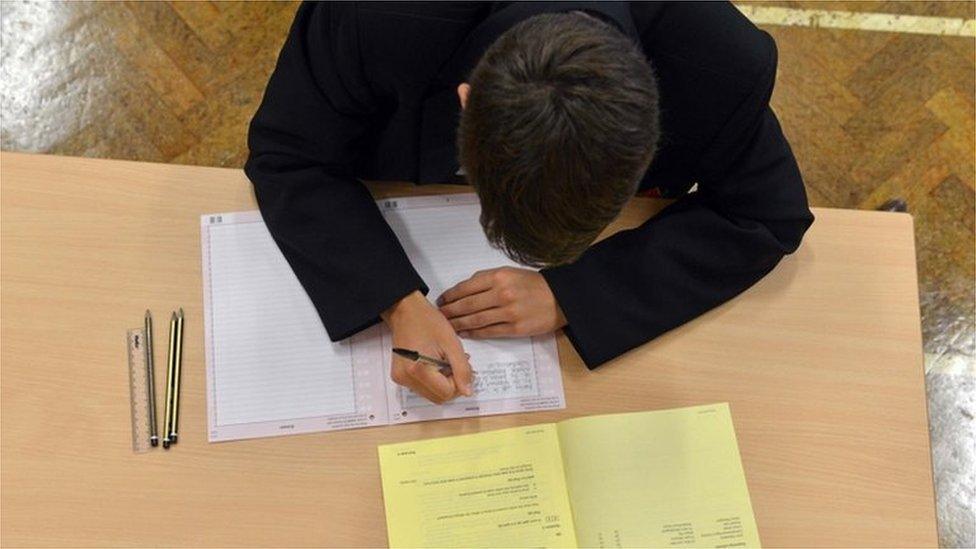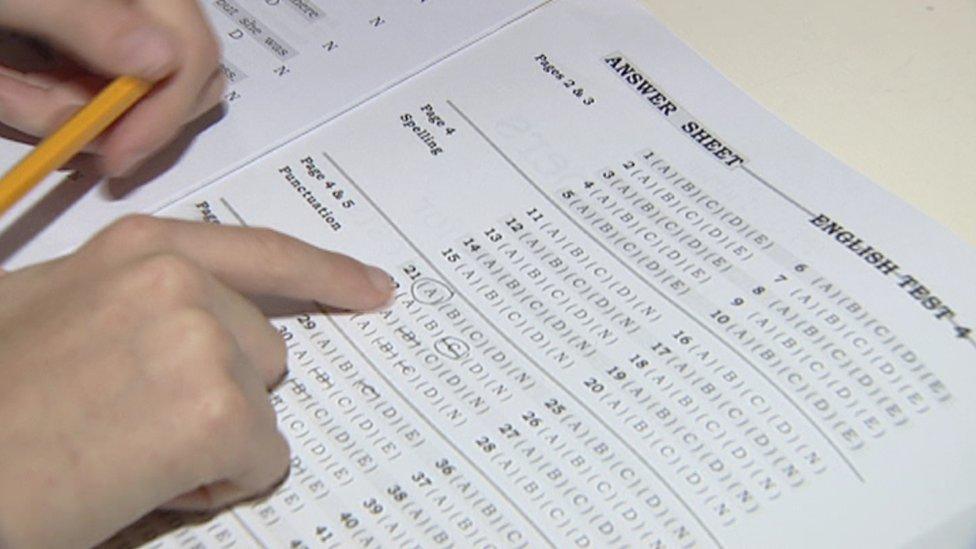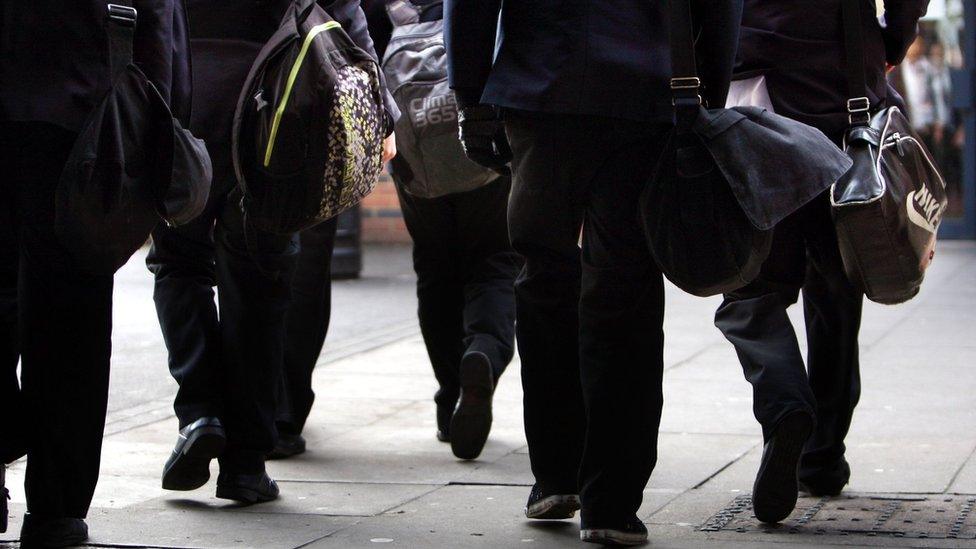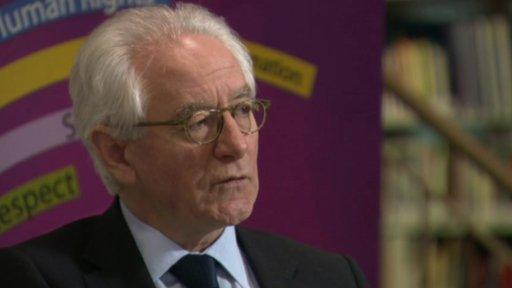Former paramilitary prisoners say academic selection should end
- Published

Some loyalist and republican ex-prisoners think scrapping transfer tests and academic selection is key to tackling educational underachievement.
They said selection at 11 discriminated "against children from their working-class loyalist and republican communities."
It is one of the findings of a new study.
It was carried out by Stranmillis University College and St Mary's University College academics.
It involved focus group discussions and interviews with some loyalist and republican activists - including ex-prisoners.
Six loyalists and six republicans took part in the small-scale but in-depth study.
The majority attended school during the 1970s and came from working-class families.
The research took place in autumn 2020 and has been published by the Centre for Research in Educational Underachievement (CREU) at Stranmillis.
The "Loyalist and Republican Perspectives on Educational Underachievement" study was funded by the Northern Ireland Office (NIO) and the Republic of Ireland's Department of Foreign Affairs (DFA).
A number of reports have highlighted the relative educational underachievement of disadvantaged children compared to their better-off peers, and in particular Protestant working class boys in Northern Ireland.
The New Decade New Approach (NDNA) agreement which restored devolved government in NI included an executive commitment to address the problems.
'Marginalised' from education system
The researchers from Stranmillis and St Mary's interviewed the loyalist and republican activists - including ex-prisoners - about their views on the links between educational achievement and disadvantage.
They were referred to in the report by pseudonyms rather than their real names.

The loyalist interviewees described themselves as disaffected by their experience of school as children, and said they still felt "marginalised" from the education system and from mainstream Unionist politics.
"Derek" said: "I just couldn't be bothered because I didn't need to, you know, back then you always knew somebody who knew somebody who could get you a job, so my sights were set on going to the shipyard."
The report said: "In contrast, several republicans, particularly those from Belfast, described being displaced by the conflict and having to move home and school overnight.
"For republican interviewees, the strategic value of education as a means of resistance and identity formation was frequently articulated in the context of their time in prison.
"For many, education was a way of continuing and consolidating their political struggle - and most notably this involved learning the Irish language and radical political theory."
'Reduced to passing exams'
Some of the loyalist interviewees did go on to take Open University qualifications in prison.
Both groups, however, said education was important now but said it was too often "reduced to passing exams."
Loyalists and republicans who took part in the research were concerned about the financial costs of education for working-class families and the impact of academic selection.
"Pupils from working-class communities were almost universally understood to be further disadvantaged by the system of selection at 11 years old, largely due to access to capital for extra tutoring and a perceived inequality of provision between non-selective and selective post-primary schools," the report said.
One republican, "Mary", told the report's authors that children who don't succeed in gaining a grammar school place "feel as if they're on a scrap heap and it's not their fault."

But while both loyalists and republicans had a "strong desire" to end academic selection, they also said there needed to be more investment in both early years education and life-long learning to address educational underachievement.
"Both groups felt that there was a need for stronger links between schools and families/communities, but this seemed to be most acute among the loyalist participants, who spoke of a general disconnect between schools in their areas and the surrounding community," the report said.
'Wanted to be a drug dealer'
Loyalist interviewees also highlighted their concerns about drugs and drug-dealing affecting education in their areas.
One, "Barry", spoke to the researchers about a pupil he knew.
"That kid could have done probably anything and what he wanted to be was a drug dealer because his uncle was a drug dealer," he said.
"Now, our communities need help with that," he added.
Loyalists also felt they were treated more negatively by schools, churches and unionist politicians within their own communities than republicans were in theirs.
"The overriding impression from the loyalist participants was one of disconnection, marginalisation, disenfranchisement and abandonment by the education system, the churches and mainstream Unionist political leaders," the report said.
"Participants spoke repeatedly of "closed shops", "closed doors" and a lack of opportunity to exert a positive influence on children and young people's educational futures, despite their best efforts."
Separately, an expert panel has been set up by the Department of Education (DE) to come up with recommendations to tackle educational underachievement and is expected to report before the summer.
Related topics
- Published3 March 2021

- Published10 January 2020

- Published3 April 2014

- Published28 July 2020
